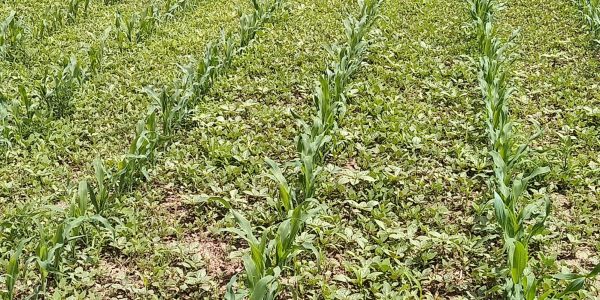Many corn fields across Ontario are infested with weeds, and with weather-related planting pauses and restarts, some growers are struggling to plant their crops while also controlling weeds.
Dr. Peter Sikkema, a weed scientist at the University of Guelph, says it’s important to get rid of weeds preemptively, especially in fields that rely on herbicide sprays. This is especially true in high-weed environments, where a delay of just 24 hours in spraying can result in significant losses in yield.
“If today is Tuesday and you delay spraying until Wednesday, the data shows you’ll lose 1.7 bushels per acre,” Sikkema said earlier this week at an agribusiness breakfast of agronomists and agricultural business leaders in Ridgetown, Ontario. His findings are based on an extensive study of postemergence products, including seven trials conducted over three years.
Sikkema did further calculations to determine the impact of weed infestation on corn yield and profitability: Waiting to spray on a Wednesday (a one-day delay) would cost growers $11 per acre in yield losses, based on a five-year average price of $6.52 per head of corn during the trial. Waiting until Friday to spray (a three-day delay) would result in an economic loss of $33 per acre.
Sikkema acknowledges that every field is different and that the type of weed also plays a role, but under heavy pressure the losses are high. He understands it can be difficult for growers to get to the fields in a timely manner, but “small weeds are easier to get rid of than big ones.” He also points out that delaying spraying can lead to larger weeds, which will require higher application rates and increase costs.
For growers who apply herbicides to corn and soybeans and plan to apply a post-weed application for optimal control, Sikkema recommends spraying the corn first. “Corn experiences greater yield loss from weed interference than soybeans because corn is more sensitive to weed interference,” Sikkema notes.







